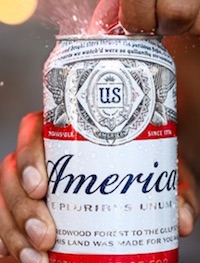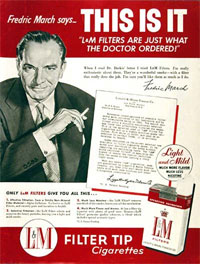 Boisterous, alcohol-driven behavior by swimmer Ryan Lochte Aug. 14 touched off an incident that dominated Olympics coverage for several days. Alcohol consumption is under new worldwide attack.
Boisterous, alcohol-driven behavior by swimmer Ryan Lochte Aug. 14 touched off an incident that dominated Olympics coverage for several days. Alcohol consumption is under new worldwide attack.
“Drinks Makers Battle Loss of ‘Health Halo,’” said a front page headline in the Aug. 22 Wall Street Journal that quoted U.K. Chief Medical Officer Sally Davies as saying, “There is no safe level of drinking.”
Alcohol consumption raises the risk of certain cancers, said the U.K. government which issued new guidelines in January that “weakened” 20-year-old advice that moderate drinking could benefit the heart.
The U.S. Dept. of Health and Human Services in January removed similar advice from its guidelines.
“For decades,” said the WSJ article by Justin Scheck and Tripp Mickle, “beer, wine and liquor producers have been helped by a notion, enshrined in a number of governments’ dietary advice, that a little alcohol can provide modest coronary and other health benefits.”
Cigarette companies, from the 1930's to the 1950's, touted health benefits of smoking and featured doctors in their ads. Helio.com collected "Ten evil vintage cigarette ads promising better health." Typical was an ad for L&M filter cigarettes which said they are "just what the doctor ordered."
New Guidelines Upset Alcohol Sellers
 “We can’t let them gain traction,” Beer Institute president Jim McGreevy told an April conference. Brewer Anheuser-Busch InBev and Diageo are joining Heineken and Pernod Ricard in a $55.4 million study of 8,000 subjects 50 and over that will take about six years. It will contrast health of alcohol users and abstainers.
“We can’t let them gain traction,” Beer Institute president Jim McGreevy told an April conference. Brewer Anheuser-Busch InBev and Diageo are joining Heineken and Pernod Ricard in a $55.4 million study of 8,000 subjects 50 and over that will take about six years. It will contrast health of alcohol users and abstainers.
InBev, which had revenues of $43.6 billion in 2015, invited controversy by winning permission, for this summer, to feature the name “America” on its cans and bottles. “It’s hard to imagine a more patriotic label, particularly for a brand that’s not even technically American,” said the Washington Post May 10, noting that A-B was bought in 2008 by InBev, a beer conglomerate based in Belgium and Brazil. InBev wants to emphasize that Budweiser beer is brewed in the U.S.
InBev and other brewers drew praise in a July 30 New York Times editorial for saying they would put calorie counts on their 12-ounce products. The average beer has 153 calories, slightly more than a can of Coca-Cola (equivalent of ten teaspoons of sugar). NYT wants such info on all beer products.
WHO Leads Battle
 A leader in the battle to reduce alcohol consumption is the World Health Organization which called drinking harmful in a population-wide scale, “even when consideration is given to the modest protective effects, especially on coronary heart disease, of low consumption of alcohol for some people aged 40 years or older,” said the WSJ article.
A leader in the battle to reduce alcohol consumption is the World Health Organization which called drinking harmful in a population-wide scale, “even when consideration is given to the modest protective effects, especially on coronary heart disease, of low consumption of alcohol for some people aged 40 years or older,” said the WSJ article.
The U.K. guidance did not deny heart health benefits but said they are “less and apply to a smaller group than previously thought,” potentially reducing death risks only to women over 55.
The alleged myth of two drinks for men and one for women daily being healthful traces to a study 40 years ago by California cardiologist Arthur Klatsky who found that light drinkers had fewer heart attacks than abstainers.
Funding Klatzy “at times” was a precursor to the industry-supported Alcoholic Beverage Medical Research Foundation, says the WSJ article.
Up until 1995, the U.S. Dept. of Health and Human Services said alcohol had “no net health benefit” and that drinking “is not recommended.” This was changed to a statement that moderate drinking was linked to less coronary heart disease in some people.
“One Drink Is Good” Finding Was Flawed
Health advocates say that “moderate drinkers” may be more concerned about their health than heavier drinkers and this may account for the lower rate of heart disease.
 Even light drinking is associated with a higher risk of certain forms of cancer, says the WSJ, quoting “public health officials.”
Even light drinking is associated with a higher risk of certain forms of cancer, says the WSJ, quoting “public health officials.”
The National Institute on Alcohol Abuse and Alcoholism, part of the U.S. Dept. of Health, said that 16.3 million adults aged 18 and older suffer from “Alcohol Use Disorder” (AUD).
There were an estimated 88,000 deaths from alcohol in 2014 (62,000 men and 26,000 women), it says. Numerous other statistics are on the Institute’s website including the incidence of “binge drinking” among various age groups.
Running counter to such advice was a column in the Aug. 27 New York Post by Karol Markowicz with the headline, “Why women love to drink: don’t fault the patriarchy.” It said many women are now taking up the drinking habits of men and said they are “blameless for succumbing to the enjoyment of a substance humans have been drinking for centuries.” Markowicz says she “enjoys an alcoholic beverage very much. I’m a bourbon girl…I simply don’t have the time to get into the bourbon as much as I’d like.”
Four U.S. Swimmers Appeared to be “Binging'
Excessive alcohol consumption led to an incident involving four U.S. Olympic swimmers that dominated the last half of the 2016 event.
There’s no doubt they were acting in a boisterous way at a gas station around 6 a.m. on Aug. 14 and that this aroused the attention of the gas station attendant and several armed security guards.
Initial reports had the swimmers, including Gold Medal winner Ryan Lochte, “trashing” the bathroom and falsely accusing the guards of trying to “hold them up” at gunpoint. Lochte has been indicted by Brazilian officials on charges of filing a false robbery report.
Lochte admits to drinking that morning and having knocked down a poster that was hanging loosely on the wall. Had this incident happened in the U.S. and police knew that Olympic athletes were involved, they might have instructed Lochte to rehang the sign and sent the athletes on their way in the cab in which they had arrived.
But “South of the border,” where we have read for many years that police may extract “on-the-spot” fines from those who break traffic or other rules, the off-duty prison guards who were working at the gas station saw this as an opportunity to extract some “damage costs” from the athletes. The swimmers were held until they coughed up some money. Lochte’s mother, Ileana, met two reporters on a bus later that morning, told them her son’s story of being robbed, and they “tweeted” it, generating one million+ stories, videos, takes and tweets.
USA Today, Forbes Correct Record
USA Today and Forbes have moved to correct the record, Forbes saying that the guards were involved in a “shakedown.”
Forbes staffer Mike Ozanian said the interview by NBC-TV’s Matt Lauer “was a sad commentary on journalism. Lauer never did any serious reporting, yet Lauer, always playing the role of the lazy, politically correct journalist, still felt justified in taking the side of the Brazilian authorities.”
The U.S. Olympic Committee “also cowered an apologized for Lochte and the other swimmers instead of digging into what actually had gone down,” he wrote.
Ozanian notes that USA Today has reported that Rio judge Joao Batista Damasceno said he does not discard the possibility that what the guards did could be “interpreted as a robbery.”
It is a “sad commentary on the state of the U.S. that no one from the State Dept. will stand up for Lochte,” Ozanian wrote. He also castigated the New York Post for calling Lochte, “Liar, Liar,” “disgraceful fool” and other names.


 In-house communications teams and agencies specializing in crisis management disagree on what details to consider when approaching a crisis, and also disagree on how helpful agency pros are when they’re called in to cool a crisis situation, according to a new report.
In-house communications teams and agencies specializing in crisis management disagree on what details to consider when approaching a crisis, and also disagree on how helpful agency pros are when they’re called in to cool a crisis situation, according to a new report. An evolving digital landscape has led to some new stategies for how communicators can most successfully manage the reputation of the brands they represent.
An evolving digital landscape has led to some new stategies for how communicators can most successfully manage the reputation of the brands they represent. C2 Strategic Communications has been called in to represent the University of Kentucky response in a sexual abuse lawsuit allegedly committed by its former swim coach Lars Jorgensen.
C2 Strategic Communications has been called in to represent the University of Kentucky response in a sexual abuse lawsuit allegedly committed by its former swim coach Lars Jorgensen. There’s a fine line between newsjacking and taking advantage, aka ambulance chasing. Our job as PR professionals is to tread it carefully.
There’s a fine line between newsjacking and taking advantage, aka ambulance chasing. Our job as PR professionals is to tread it carefully. PR firms need to be mindful of ways their work product may be protected by the attorney-client privilege whenever working with a client’s internal legal team or its external legal counsel.
PR firms need to be mindful of ways their work product may be protected by the attorney-client privilege whenever working with a client’s internal legal team or its external legal counsel.


 Have a comment? Send it to
Have a comment? Send it to 
No comments have been submitted for this story yet.